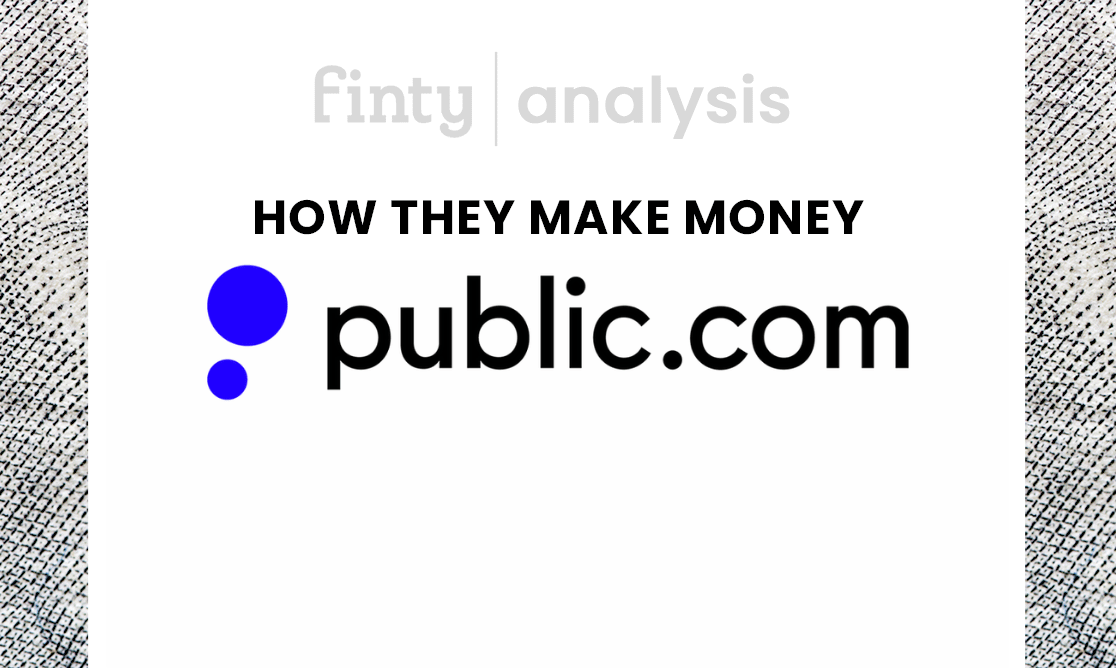- Public.com is an investing platform allowing for the purchase of fractional shares for entry-level investors.
- Public.com focuses on leveling the investing playing field for Americans.
- Public.com makes money by charging interest on short selling and rebates on transactions.
Leif Abraham, Jannick Malling, Peter Quinn, Matt Kennedy, and Sean Hendelman founded Public.com in September 2019. The company has headquarters in New York City, and it serves the US market. The company has 35 employees, and it raised $24 million in funding from VC's and private investors, with celebrities like Will Smith investing in the company.
Public.com also raised $15 million in a Series B funding round, giving it a $1.2 billion valuation and "unicorn status" among VC investors. The company offers small investors the chance to compete in the market without the need to comply with the "PDT" rule enforced by the SEC.
Read on for a look inside their business model, how they generate operating cash, and how they can grow the business.
Read our detailed Public.com review for more about what you can do with it.

Coming up next
What does Public.com do?
Public.com is a social investing app catering to smaller investors with less than $25,000 in investible savings. Typically, investing in equities and other financial assets requires investors to meet a $10,000 minimum for a cash account and a $25,000 for a day trading account (margin account).
Public.com launched in September 2019 with the goal of making investing available to all Americans through its platform. The company allows investors to buy "fractional shares" in companies instead of using options or purchasing full shares out of their price range.
For instance, you can buy a tenth of a share of Amazon stock, costing you around $300 instead of $3,000. The site allows users to buy stocks and invest in ETFs with no commissions or fees on trades.
How does Public.com work?
Public.com offers users an app they can use to build a stock portfolio. Investors can create a portfolio in specific markets, known as "themes." For instance, a user can invest in EV companies or ESG compliant businesses.
The company also provides investors with interest on their cash balances held in their accounts. Users will receive a 2.5% APY on balances over $10,000. The company also offers Securities Investor Protection Corp. insurance on portfolio values up to $500,000 and $250,000 on cash balances in their account.
The app offers users in-app support through chat and a thriving social media platform where its users can discuss investment strategies and market events. The site focuses on attracting long-term investors, and it doesn't cater to day trading like other apps, such as Robinhood.
Users can purchase shares in publicly traded US companies or ETFs, like the SPDR S&P 500, with investments as low as $5.
How Public.com makes money
Public.com makes money by charging interest on cash to institutional partners, fees for lending stock to short sellers, and offering its users a bouquet of premium features. Let's unpack the model in detail.
Interest on cash
Public.com's biggest revenue stream comes from loaning out unused cash balances to institutional partners, like banks. Banks use this cash to float their operational costs, paying it back to Public.com with interest.
The company doesn't directly loan out your money from your account; it leverages it to make the loans to its partners. Through this model, Public.com can offer its users a 2.5% return on any cash balance they leave on the platform.
Fees
Public.com also earns income through fees charged on lending investors stock for short positions (selling equities).
It makes money when the short seller covers their position, charging for the difference in price between buying and selling the stock. Public.com also receives rebates for selling certain stocks promoted by companies.
Premium features
While the company doesn't offer any premium features, it intends to introduce them to its platform soon. It will charge its users for access to these additional premium in-app features.
Future growth engine
According to CEO Levin Abraham, the company will use the premium feature model as its catalyst for future growth. The company also intends to reinvest profits into its business to build out the premium features and social media side of its business.
Competitors
Public.com competes with other brokerages offering commission-free trading accounts, such as Fidelity, Vanguard, TD Ameritrade, and others. It also competes with other investing apps offering fractional share investing, which includes Robinhood, eToro, Webull, Stash Invest, M1 Finance, Moomoo, and many others.

